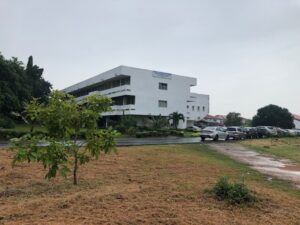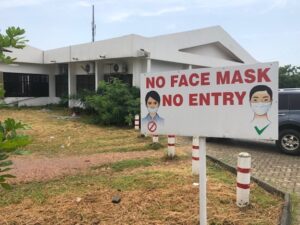Though this summer is coming to an end and my amazing practicum experience with it, rather than coming to a full stop, I feel like my work in public health is moving full steam ahead. Transportation references aside, my practicum this summer focused on the qualitative analysis portion of an implementation science evaluation of the national scale up of a midwife-led Obstetric Triage Intervention Package (OTIP) in high-volume hospitals in Ghana [1].

The final stretch included analyzing and interpreting all the transcribed interviews and synthesizing the data into a report and presentation targeted toward a general policymaking audience. I had expected the most challenging aspect of the practicum to include the process of developing a codebook for the interviews and the subsequent coding process, but I was surprised by the work that came after—what did all of this data mean? How would this translate into something practical and applicable? There was a lot of floundering and panic on my part, but the process of creating this “results” report was an ultimately rewarding one—I learned so much more about qualitative research, maternal and child health, and implementation science, and more importantly, how much I still have to learn. I look forward to making the connections between what I learned during this practicum experience and the classes I will be taking in the Fall (I’m looking at you HBEH 784 – Implementation Science in Global Health).

Once again, this hybrid/remote practicum model has allowed me the opportunity to explore more of my new home. My last summer trip included a visit to the Outer Banks Beach area. As a Florida native, I thought I knew beaches but this trip was definitely a learning experience. All of my invertebrate biodiversity class experiences seemed to pay off – I had a great time examining all of the Mollusca specimens in between some nice beach naps.
Finally, thank you to my preceptors, Stephanie Bogdewic, MPH and Caitlin Williams, MSPH for all your patience and mentorship this summer! And thank you to our partners at the Kybele-Ghana organization and the Ghana Health Service for your collaboration and inspiring work in improving the health and well-being of mothers* and children in this project.
– Amy T.
* The author acknowledges and respects the lived experiences of birthing individuals with gender identities not exclusive to cisgender female identities. However, for the purposes of data collection/analysis and recognizing Ghanian cultural values and norms, individuals that give birth have been referred to with traditional binary terminology, including women, females, and mothers.



